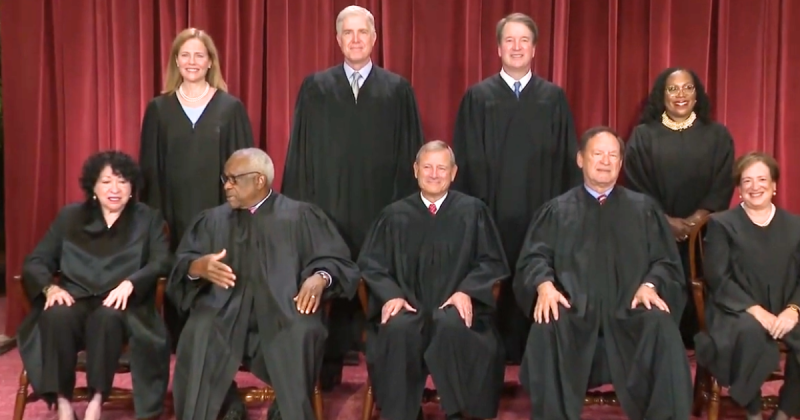The Supreme Court is preparing to rule on a challenge to Colorado’s 2019 Minor Conversion Therapy Law (MCTL), which bars licensed therapists from providing counseling aimed at changing a minor’s sexual orientation or so-called gender identity.
Christian counselor Kaley Chiles argues the law infringes on her First Amendment rights, raising questions about the limits of free speech and religious expression in professional counseling.
Chiles, represented by the Alliance Defending Freedom, contends that the MCTL permits therapists to affirm a minor’s self-identified orientation or gender identity while restricting guidance aimed at aligning a minor’s identity with their biological sex.
Her legal team argues that this constitutes viewpoint discrimination, privileging one ideological perspective over another.
At issue is whether counseling in a professional setting should be considered conduct subject to regulation or protected speech.
The case has broad implications.
Over half of U.S. states have enacted similar bans, meaning the Supreme Court’s decision could influence counseling practices nationwide.
A ruling favoring Chiles could allow faith-informed therapeutic approaches that are currently restricted, potentially reshaping how counselors provide guidance to minors navigating questions of sexual orientation or gender identity.
During oral arguments, justices examined whether the law creates inconsistencies in its application.
Justice Elena Kagan posed a scenario in which one therapist supports a minor’s self-identified orientation while another encourages alignment with biological sex, asking why only one approach would be permissible.
“That seems like viewpoint discrimination in the way we would normally understand viewpoint discrimination,” Kagan said, per Fox News.
Justice Samuel Alito questioned whether medical consensus might be politicized and whether laws like the MCTL could unintentionally favor a particular ideological viewpoint.
Chiles describes her approach as “faith-informed,” emphasizing voluntary counseling designed to help minors achieve harmony with their physical bodies rather than attempting to change sexual orientation.
According to The Daily Caller, she told reporters that the law denies struggling youth access to guidance that could support their emotional and mental well-being.
Colorado defends the law as a regulation of professional conduct intended to protect minors from counseling deemed unsafe.
State officials cited studies linking conversion therapy to depression, anxiety and other harms, though Chiles’ attorneys question the reliability of these studies and contend that voluntary counseling can benefit minors without causing harm.
Justices debated how professional speech intersects with constitutional protection.
Chief Justice John Roberts and Justice Brett Kavanaugh noted that professional advice often overlaps with speech and questioned whether it should lose protection simply because it occurs in a licensed therapeutic setting.
Observers say a ruling in favor of Chiles could challenge the authority of states to impose blanket restrictions on counseling minors, raising questions about the limits of government regulation of professional guidance.
Conservative justices appeared receptive to the argument that the law may unconstitutionally restrict certain viewpoints while allowing others, signaling a potential shift in how courts evaluate similar statutes nationwide, RedState reports.
The outcome of the case could set a precedent for other states with similar bans, influencing legal debates about free speech, religious expression and professional counseling.
As oral arguments continue, all eyes remain on the Supreme Court to see how it balances the protection of minors with constitutional rights of speech and belief.

